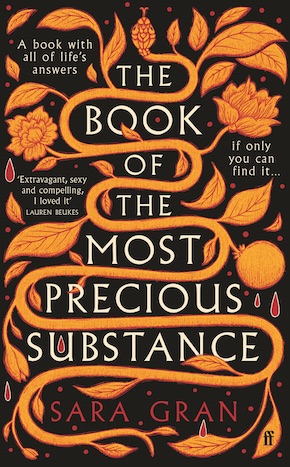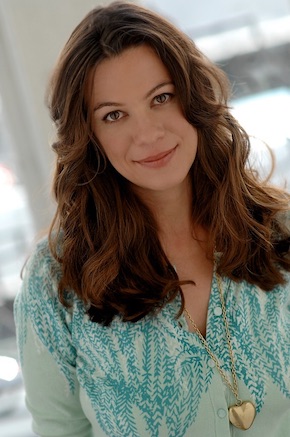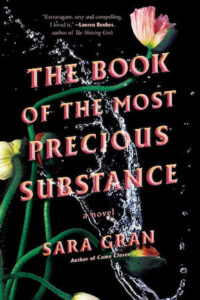Starting small
by Sara Gran
“Palpably seductive. The search for pleasure and magic is an aphrodisiac, one that pulses on the page… Readers have little choice but to follow the book to its sinister conclusion.” The New York Times
Lord knows why, but starting my own small press has been a dream as long as I can remember. Guess I’m allergic to money. When I was child, I used to make little books out of typing paper and staples; in my twenties, when no one wanted to publish me, I made pamphlets out of my short stories and gave them away. But when I started getting publishing deals, I put these silly little projects aside. I’d made it!
Well, as any author knows, ‘making it’ doesn’t buy you much, in money or goodwill. When I finished The Book of the Most Precious Substance, it immediately became clear that the American publishing world wasn’t getting the book. I knew it had the potential for a wider audience than my previous books, but no one else seemed to see it. So I started my own press, Dreamland Books.
History is, I think, on my side. Here’s the thing a lot of writers might not know: publishers, like all of us, are very often wrong. I’d worked in bookstores, and sold rare books (medium-rare, as some of us jokingly call them – books that can fetch fifty or a hundred bucks) for years. The entire business of collecting modern first editions is the business of collecting publishers’ mistakes. A first edition is only worth money if it’s both rare and desired – in other words, the publisher printed a whole lot fewer of the book than buyers wanted. There are book dealers who make entire livings off of such mistakes. I’ve experienced this myself with my book Come Closer, published to a complete absence of fanfare, acclaim, and (most importantly) personal flattery in 2003 in a small print run. But readers have found the book, and now those first editions are themselves medium-rare, selling for seventy-five dollars.
I also knew I could design – or rather supervise the design, by excellent designer Zoe Norvell, of a book I would be proud of. Large publishers, with the necessity of cost control and high overheads, have turned to thinner papers and smaller type to keep things profitable. I’ve spent thousands of hours of my life handling books in new bookstores. Paper matters. Type size matters. A book is an unusual cultural artifact, because we want it to be beautiful, and help tell the story that lives inside, but most of all we need to be able to read it. Without the constraints of Manhattan-priced overheads, I was able to produce a beautiful book and still make a profit, if a small one.
D.H. Lawrence, like me, wrote a dirty book and printed it himself because of others’ wariness around one of the best parts of life.”
The tradition of writers publishing their own books has been frowned on in recent years, a step into a kind of demi-monde of scams and vanity, without the approving and guiding hands of Mr. Simon or Ms. Penguin. Well, William Blake and Virginia Woolf would like a word. So would D.H. Lawrence, who, like me, wrote a dirty book and printed it himself because of others’ wariness around one of the best parts of life (we’re talking about Lady Chatterley’s Lover, if it isn’t obvious, and sex, if that isn’t obvious).
My interest in publishing history, especially recent history, is surprisingly helpful on the business side too. I’ve seen a bunch of small publishers come out of the gate with spectacular success, only to fold a few years later, leaving their writers in a hellscape of rights and royalties lost. Distributors take a huge cut and, if they collapse – which they do – the books sit in a warehouse, publishers don’t get checks, and everyone loses. I dream of publishing all my friends, but I have nightmares of losing their money. Very few people can tolerate me; this is a risk I cannot take. Everyone is asking me what I’m going to publish next, which is lovely, but I’m going to grow my company slowly, beginning with some copyright-free reprints to figure it all out, and stick with print-on-demand for at least the next two years (which means I don’t need a distributor – my printer also distributes). And I will never, ever sign anyone to a life-of-the-copyright contract.
As I suspected, this has been my best-selling book to date, and I’m excited to move forward – to continue to publish my own work, overlooked books from the past and, once I have an accountant and some safeguards in place, other living writers. And I’m sure, like all publishers great and less-great, I’ll make plenty of mistakes along the way. Out of all the benefits of having my own press, the best of all has surprised me: I’ve advised a few others on getting a publishing operation off the ground, and people I admire now want me to publish them. There is no higher compliment I can imagine.
 Sara Gran is the author of six previous novels, including Come Closer and the acclaimed PI Claire DeWitt crime series. She also writes for film and TV, including Southland and Chance, and has published in The New York Times, The New Orleans Times Picayune and USA Today. Born and raised in Brooklyn, she lives in California. The Book of the Most Precious Substance, first published by Dreamland Books in February 2022, is out now from Faber in hardback and eBook.
Sara Gran is the author of six previous novels, including Come Closer and the acclaimed PI Claire DeWitt crime series. She also writes for film and TV, including Southland and Chance, and has published in The New York Times, The New Orleans Times Picayune and USA Today. Born and raised in Brooklyn, she lives in California. The Book of the Most Precious Substance, first published by Dreamland Books in February 2022, is out now from Faber in hardback and eBook.
Read more
worldsbestdetective.com
dreamland-books.com
Instagram: sara__gran
Twitter: @Dreamland108
@FaberBooks
Author portrait © Deborah Lopez


